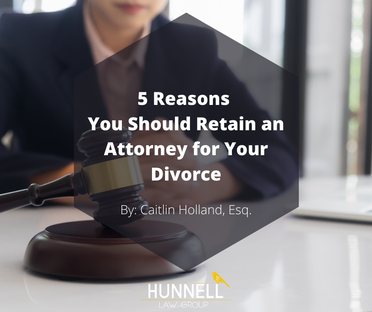|
HOA Pet Restrictions: Limits on Dogs But Not On Children?!
By Ryan Westerman Homeowners’ Associations (or “HOA’s” as they are commonly referred to) are the governing bodies that make, change, and enforce the rules of the community for which it was incorporated to run. HOA’s govern real property complexes, like a condominium building or a senior citizen development. Property owners within the complex are members of the HOA and are encouraged to attend and participate in the meetings where communal issues are discussed and often colorfully debated. Members vote in elections for the purpose of elevating other members to the HOA’s board which influences the decisions made on behalf of the community. Some issues are reserved to a board member vote. Some issues are held to a general vote by all members of the community. As with any vote, there are winners and losers. Sometimes the loss can be heartbreaking. An HOA for a recent buyer represented by the Hunnell Law Group voted to change their pet restrictions with a result that I found to be patently unfair but also having the possibility to tear a family apart. It’s a safe conclusion that most people with pets view them as members of the family. #Furbaby has over 17,500,000 million posts on Instagram as of this writing. Our pets are our children. We feed them, take them to the doctor when they’re sick, and in return there is a mutual love like no other. You can imagine my shock when I read the following change to the HOA pet rules: __________ “Any units having more than one (1) pet as of May 2012, will be considered “grandfathered”. Definitions: “Grandfathered” unit owners shall not be allowed to add or increase the number of pets above the current number of pets in the unit as of the approval date of this publication. “Grandfathered” unit owners shall not be allowed to replace pets in the event the current number of pets decrease as a result of death of a pet unless it is the last pet in the unit. __________ These new rules were enacted in 2021. Thus, any current member that took in a second pet after May 2012 (almost NINE YEARS AGO!) could have to give them up. There is no fairness to this rule any way you cut it. First, the rule should be enforceable as of the day of it’s passing. Members should be on notice of such dramatic life changes so they can decide not to take on a second pet, rather than be forced to give them up. Taking away someone’s pet is inhuman in my humble opinion no matter how long you have them. As with any relationship, the bond only grows stronger with time. I personally have difficulty finding this rule to be enforceable. However, unless the affected party can negotiate with the HOA or afford a lawsuit, chances are Fluffy will have to go. Or Spike. A true Sofie’s choice. #realestate #attorney #HOA #woof #meow
0 Comments
 5 Reasons You Should Retain an Attorney for Your Divorce by Caitlin Holland, Esq. Updated 7/9/22 1. You are not familiar with the divorce process/ you do not know where to start. Divorce can be a complicated and fairly emotional process. That is especially true since processes and procedures have changed so significantly after COVID, including electronic filings and virtually hearings. Retaining an attorney that aligns with you, your finances, and your expectations can be a great asset to you in your divorce process. Family Law Attorneys are familiar with the rules of Court, procedure, proper documentation necessary in the divorce process and technology necessary for virtual appearances. Their expertise will give you peace of mind by helping you avoid the anxiety of having to represent yourself properly. An attorney can also help you manage your expectations in a divorce which can help you settle your divorce more quickly and avoid future conflict. Even if the divorce is not contentious, you can avoid future conflict or work if you hire an attorney to ensure that the proper procedures have been followed. 2. Your relationship with your spouse is becoming contentious. When a marriage starts to break down, there is often conflict. While some parties can successfully navigate the conflict and proceed with an amicable divorce, it is not always the case. Often when there are hurt feelings, an adversarial spouse will hurl idle threats at the other spouse (“You’ll never see your child again if you divorce me”) that can fuel a contentious divorce. When that happens it becomes hard to maintain perspective and the process can become more about defending yourself than working toward your future after divorce. By retaining a Family Law Attorney, you can avoid some conflict and bullying, and have someone in your corner guiding you through the chaos. When one or both parties retain attorneys, the parties may even be able to avoid contact with the other by only communicating about the divorce through their attorneys. 3. You and your spouse have complicated finances that will require a lot of documentation. If the parties have particularly complicated finances, it is prudent to retain an attorney. For example, if the parties own their own business(es), there are numerous assets or debts, a party is requesting alimony or a party is requesting child support, there will likely be disclosures and documents that you would like to review before you agree to any terms of divorce. Navigating discovery can be daunting and confusing when a party is left to make those requests on their own. It is best practice to retain an attorney in order to ensure that you receive all necessary financials and are making the best deal possible and/or advocating for an equitable settlement. 4. You have children. Having children presents a number of complications in the divorce process. Issues arise like child custody, child support, parenting time, school, health expenses, etc. Often, parties have an idea of the custody and parenting time aspects of the divorce based on the status quo of the marriage. However, there are certain statutory requirements to things like child support that an experienced family law attorney can help you navigate, including ensuring proper income and expenses are included in the Child Support Guidelines. This also tends to be a very emotional portion of the divorce process, an attorney will be able to help you manage your expectations and advocate for you and your child(ren)’s best interests. 5. There are one or more prior orders or agreements between the parties. Whether the parties negotiated a prenuptial or postnuptial agreement, or there is a restraining order with temporary terms, it can be prudent to engage an attorney to help you navigate your divorce under the terms of the prior agreements and/or make petitions to the court to contest or modify terms of those prior agreements, if necessary. If you are interested in speaking to an attorney about a divorce, go to wwwHunnelLaw.com/contact to schedule an appointment. By Ryan Westerman
Recently, the Hunnell Law Group has received an influx of cases seeking to sue their home inspector for making one or more major mistakes or omissions during the home inspection phase, costing the property owner several thousands of dollars in necessary repairs post-closing. In a few instances, the mistakes were glaring. I was shocked a licensed inspector could miss items that are so open and obvious. My first words of advice to these parties are review the Home Inspection Agreement. This is the document that outlines the terms and conditions of the home inspection which both parties sign. More often than not, there is a low ceiling on what can be recovered. It is not uncommon to limit the damages to just the return of the inspection fee, typically between $400.00 - $600.00. Recently, I saw a liability limit that appeared more reasonable on its face. There was a catch of course. Isn’t there always? "[LIABILITY] will not be more than the lesser of actual damages or ten times (10x) the inspection fee. Client waives any claim for consequential, exemplary, special, or incidental damages or for the loss of the use of the property." It doesn’t take much imagination to create the scenario where the actual damages are significantly more than 10x’s the inspection fee. If the inspection overlooked an enormous structural issue that will cost $20,000.00+ to repair, and the inspection cost $500.00, then the aggrieved party is getting $5,000.00, without the ability to sue for other damages. The Home Inspection Advisory Committee (N.J.A.C. 13:40-15) does hold inspectors to a certain level of professional performance. N.J.A.C. 13:40-15.20 (“SUSPENSION, REVOCATION, OR REFUSAL TO RENEW LICENSE”) outlines instances where the Committee “may deny, refuse to renew, or temporarily suspend or revoke a license, or issue a civil penalty[.]” An inspector that has engaged in “repeated acts of negligence, malpractice or incompetence” qualifies for punishment from the committee up to and including losing their license. So, while you may not be made whole financially, you can report the inspector to the committee, in the hopes of preventing another individual from a financial windfall or purchasing a house without a sound structural foundation. It’s officially been over a year since the New Jersey Courts have transitioned to virtual proceedings. After months of growing pains, court calendars were scheduled again and virtual hearings became common practice. Unfortunately, many court calendars are still backlogged and running much slower than they did before. This can be bad news for divorcing couples as some judges’ calendars are so backlogged that they are scheduling divorce trials months and months in the future.
It’s commonly known that most divorces settle. The reason for this is that parties usually want control over the terms of their divorce, especially when there are children involved. There are a few different ways to settle a divorce through Alternative Dispute Resolution before it ever gets to trial.
There are many benefits to settling a divorce through ADR, especially right now. First, as previously mentioned, the parties maintain varying levels of control over the terms of their divorce. Second, use of one of the above methods of ADR can significantly decrease the cost of your divorce. Divorces are notoriously expensive – there are so many costs associated with trial that you can avoid should you choose to settle. Third, Courts are governed by case law, statute, court rules and the rules of evidence. If you decide to settle your case there are, generally, more creative solutions that are not strictly bound by Rules and evidence. Fourth, divorce litigation can take a very long time, especially amidst the pandemic. If a divorce is particularly contentious or complicated, there can be weeks of trial dates, whenever the Court can fit them into the calendar. Finally, ADR will almost certainly avoid the high level of conflict that comes with a trial. Divorces are emotionally taxing, but if you are willing to come to the table and compromise it can be beneficial to the parties’ relationship moving forward. Obviously, ADR is not the best choice in every case, but it’s surprising how many contentious divorces can settle if the parties have the right attorneys and are willing to make some compromises. If the parties do not choose to move forward through one of the above-mentioned processes, the court would then schedule trial dates and the parties would move forward with traditional litigation. If the parties are successful in their attempts to settle the case through ADR, they then submit their agreement or the arbitrator’s decision to the Court and appear at an Uncontested Divorce Hearing where the judge signs the Judgment of Divorce. If you are contemplating divorce and would like to speak to an attorney, visit HunnellLaw.com/contact to determine whether ADR may be applicable to your circumstances. Author: Caitlin Holland, Esquire |
Details
Contributors:Stephanie Hunnell, Esq. , Ryan Westerman, Esq. and Caitlin Holland, Esq. Archives
April 2024
Categories
All
|
|
Hunnell Law Group, LLC is conveniently located at 908 Main Street., Asbury Park, NJ 07712
You can contact us at 732-749-3500 or by facsimile at 732-749-3503 Attorneys serving Asbury Park, Avon-by-the-Sea, Belmar, Manasquan, Bradley Beach, Freehold, Toms River, Fair Haven, Red Bank, Manalapan, Marlboro, New Brunswick, Jackson Township, Brick, Howell, Asbury Park, Ocean Township, Eatontown, Wall Township, Neptune City, Neptune Township, Spring Lake, Wanamassa, Lake Como,
Monmouth County, Ocean County, Middlesex County, and Mercer County, in Central New Jersey. |
© 2019, 2020, 2021, 2022, 2023 Hunnell Law Group, LLC, all rights reserved. Disclaimer & Site Map & Privacy Policy.
No aspect of this advertisement has been approved by the Supreme Court of New Jersey.


 RSS Feed
RSS Feed